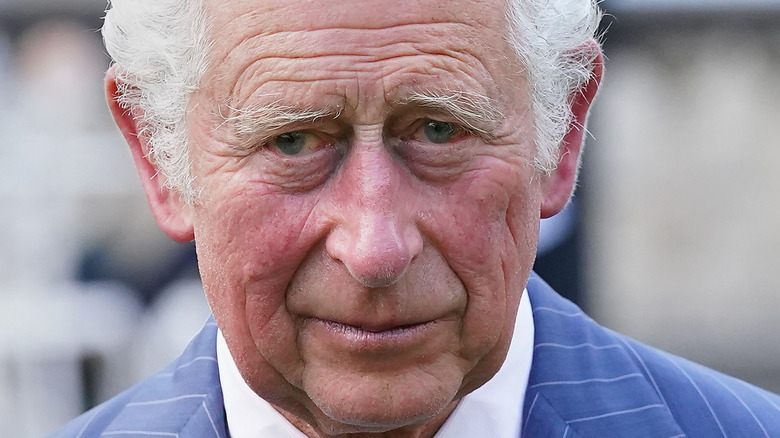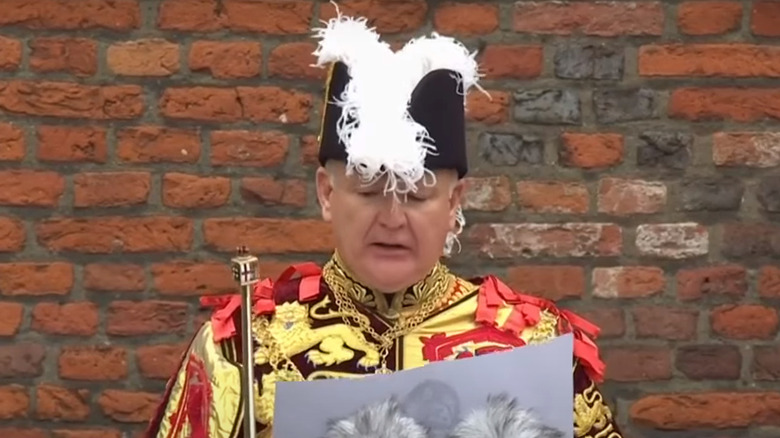King Charles' Proclamation Was A Historic Event For This Unexpected Reason
On September 10, as People reports, King Charles III was officially proclaimed the sovereign of the United Kingdom and its Commonwealth Realms. It may seem a bit redundant to those not familiar with the intricacies of British procedure when it comes to the monarchy; after all, the world had known for about 48 hours by that time that his predecessor, Elizabeth II, had died and that Charles III is now the king. Further, Charles became king immediately on his mother's death; the proclamation did not "make" him king. Rather, the proclamation was and is one of many steps that need to be checked off as the monarchy transitions from the previous reign to the next.
The event was, not unexpectedly, filled with the requisite ceremony, surrounded by guards in military uniforms and the members of the Accession Council themselves dressed in their finery. It's not clear how many people watched it live on television as it happened — likely tens of millions — and it's almost a certainty that an equal or greater number watched it online either live or sometime later. None of that access was possible the last time such a proclamation took place.
This was the first televised proclamation of a UK monarch
"Whereas it has pleased Almighty God to call to His mercy our late Sovereign ..." read an official (via YouTube), in his opening words proclaiming Charles III as king. The last time such words were read from St. James's Palace, they were about King George VI being called to God's mercy, and were used to open the proclamation of Elizabeth II as queen. That was in 1952, according to Britannica; television was in its infancy, the internet decades away. As such, the event was not televised, much less live-streamed. As Deadline reports, the proclamation of Charles III as king was precedent-setting in that it was and is the first such proclamation to be televised.
However, when Charles III is crowned (which isn't likely to happen for another year if not longer, according to Elle), it will not be the first televised coronation. Though the television cameras skipped Queen Elizabeth II's proclamation, her husband, Prince Philip, according to The Washington Post, urged that her coronation be televised when it took place more than a year later, on June 2, 1953. Portions of that telecast are posted on YouTube.

